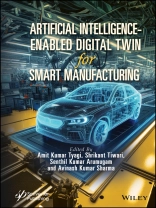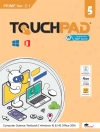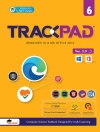An essential book on the applications of AI and digital twin technology in the smart manufacturing sector.
In the rapidly evolving landscape of modern manufacturing, the integration of cutting-edge technologies has become imperative for businesses to remain competitive and adaptive. Among these technologies, Artificial Intelligence (AI) stands out as a transformative force, revolutionizing traditional manufacturing processes and making the way for the era of smart manufacturing. At the heart of this technological revolution lies the concept of the Digital Twin—an innovative approach that bridges the physical and digital realms of manufacturing. By creating a virtual representation of physical assets, processes, and systems, organizations can gain unprecedented insights, optimize operations, and enhance decision-making capabilities.
This timely book explores the convergence of AI and Digital Twin technologies to empower smart manufacturing initiatives. Through a comprehensive examination of principles, methodologies, and practical applications, it explains the transformative potential of AI-enabled Digital Twins across various facets of the manufacturing lifecycle. From design and prototyping to production and maintenance, AI-enabled Digital Twins offer multifaceted advantages that redefine traditional paradigms. By leveraging AI algorithms for data analysis, predictive modeling, and autonomous optimization, manufacturers can achieve unparalleled levels of efficiency, quality, and agility.
This book explains how AI enhances the capabilities of Digital Twins by creating a powerful tool that can optimize production processes, improve product quality, and streamline operations. Note that the Digital Twin in this context is a virtual representation of a physical manufacturing system, including machines, processes, and products. It continuously collects real-time data from sensors and other sources, allowing it to mirror the physical system’s behavior and performance.
What sets this Digital Twin apart is the incorporation of AI algorithms and machine learning techniques that enable it to analyze and predict outcomes, recommend improvements, and autonomously make adjustments to enhance manufacturing efficiency. This book outlines essential elements, like real-time monitoring of machines, predictive analytics of machines and data, optimization of the resources, quality control of the product, resource management, decision support (timely or quickly accurate decisions).
Moreover, this book elucidates the symbiotic relationship between AI and Digital Twins, highlighting how AI augments the capabilities of Digital Twins by infusing them with intelligence, adaptability, and autonomy. Hence, this book promises to enhance competitiveness, reduce operational costs, and facilitate innovation in the manufacturing industry. By harnessing AI’s capabilities in conjunction with Digital Twins, manufacturers can achieve a more agile and responsive production environment, ultimately driving the evolution of smart factories and Industry 4.0/5.0.
Audience
This book has a wide audience in computer science, artificial intelligence, and manufacturing engineering, as well as engineers in a variety of industrial manufacturing industries. It will also appeal to economists and policymakers working on the circular economy, clean tech investors, industrial decision-makers, and environmental professionals.
Circa l’autore
Amit Kumar Tyagi, Ph D, is an assistant professor at the National Institute of Fashion Technology, New Delhi, India. He obtained his doctorate in 2018. He has published more than 200 papers in refereed international journals, conferences, and books, many of which are with the Wiley-Scrivener imprint. He has filed more than 25 national and international patents in deep learning, the Internet of Things, cyber-physical systems, and computer vision. His current research focuses on next-generation machine-based communications, blockchain technology, smart and secure computing, and privacy.
Shrikant Tiwari, Ph D, is an associate professor in the Department of Computer Science & Engineering, School of Computing Science and Engineering, Galgotias University, Greater Noida, Uttar Pradesh India. He obtained his doctorate in 2012. He has authored or co-authored more than 75 national and international journal publications, book chapters, and conference articles. He has five patents filed to his credit. His research interests include machine learning, deep learning, computer vision, medical image analysis, pattern recognition, and biometrics.
Senthil Kumar Arumugam, Ph D, is an assistant professor in the Professional Studies Department, CHRIST (Deemed to be University), Bangalore Central Campus, Bengaluru, India. He obtained his doctorate in 2014. He has received 9 awards.
Avinash Kumar Sharma, Ph D, is an associate professor in the Department of Computer Science and Engineering, Sharda School of Engineering and Technology, Sharda University, Greater Noida, India. He has published about 30 research articles in national/international conferences, journals, and book chapters, edited four books and has published four patents including one design patent.












